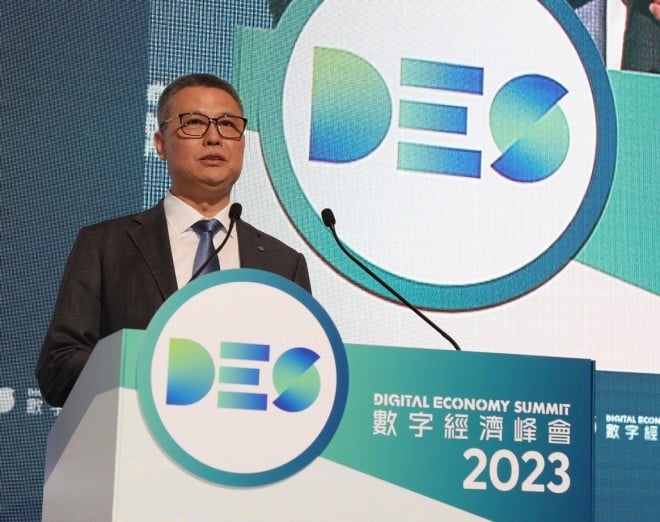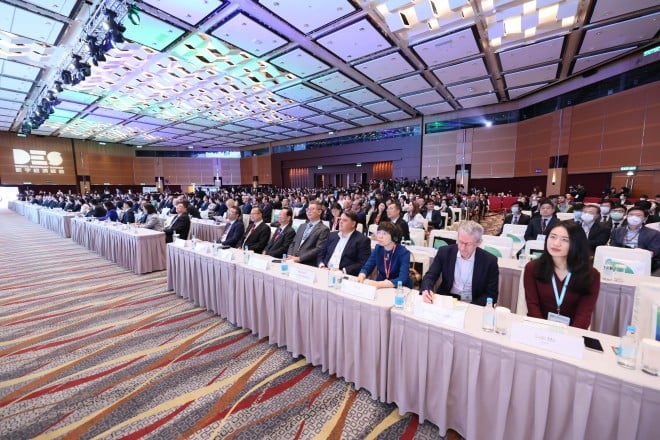
DES 2023 explores mega trends that shape the future of digital economy
To build a common platform for digital economy, Bank of China (Hong Kong) executives highlight the need for an inter-connected and coherent digital infrastructure with cross-platform solutions at this year’s Digital Economy Summit.
[The content of this article has been produced by our advertising partner.]
To pave the way for a digital economy, it is necessary to create an inter-connected and coherent digital infrastructure that supports decentralised applications and platforms, develop cross-platform solutions to enable seamless integration, and engage with policymakers to establish supportive and adaptable regulations.
Wrapped up on April 14, the two-day Digital Economy Summit (DES) 2023 gathered banking executives, entrepreneurs, innovators and thought leaders to decode the future trends in smart city, data innovation, fintech, Web3, AI & big data, smart mobility, and new industrialisation.
Many countries have already formulated blueprints to foster the development of the digital economy, so it is important for Hong Kong to build a unified standard and a coherent digital financial infrastructure for financial institutions, innovators and customers in the digital economy, said Dr Rocky Cheng, chief information officer of Bank of China (Hong Kong) (BOCHK), in his keynote speech. The bank is the Digital Banking Partner of this year’s DES.

Dr Cheng believes that an integrated digital financial infrastructure should be underpinned by three foundations. First, the full digitalisation of different infrastructures. Second, the interconnectivity and interoperability of different infrastructures, enabling at least transactions and operational data to be shared and exchanged seamlessly.
Third, the ultimate goal is to achieve interaction among different financial infrastructures to form a unified ecosystem, which can translate big data into insights and increase operational intelligence and allow for better risk control and crisis management.
Once the digital financial infrastructure system is successfully established, a unified standard can be set for the digital transformation for other sectors, thereby accelerating Hong Kong's digital transformation and smart cities development, while connecting Hong Kong to the global digital economy, said Dr Cheng.
During a panel discussion, Arnold Chow, deputy general manager of BOCHK’s personal digital banking product department, noted that in the past few years, different kinds of cross-industry collaborative digital transformations have taken place, many of which have adopted new technologies such as big data and artificial intelligence to enhance operational efficiency and solve customer service pain points.

For example, the bank has adopted technologies to better understand their customers' risk profiles and help them make informed investment decisions through mobile banking, in addition to traditional face-to-face investment analysis services.
He added that, in recent years, the bank has launched a suite of online services, such as green loans, green mortgages and green bonds, actively embracing sustainable development and helping Hong Kong build itself into a smart city.
In fact, Hong Kong's fintech ecosystem is gradually maturing, with banks, tech companies, and fintech start-ups forming a symbiotic relationship that offers many opportunities for collaboration and synergy.
“Hong Kong has a vibrant fintech ecosystems and is home to more than 800 fintech enterprises… the success or otherwise of fintech, virtual assets or Web3 applications in finance will be staked on whether new technologies, models and applications could actually serve the needs of the real economy, address the existing pain points, improve transaction efficiency, create value, and deliver better experiences,” Paul Chan, Hong Kong’s financial secretary, told the audience in his welcome speech.

Chan noted that Hong Kong has the potential to become a key player in the emerging digital economy and is well-positioned to tap into the opportunities presented by Web3. In doing so, the government will continue to strike the appropriate balance between regulation and facilitation, so that virtual asset innovations can thrive in Hong Kong in a sustainable and responsible manner.
Organised by the Hong Kong government with the support of various industry organisations, DES 2023 marked the latest effort by Cyberport to build a vibrant smart city ecosystem and drive the growth of the digital economy, echoing the broad directions and strategies set forth by the ‘Hong Kong I&T Development Blueprint’, ultimately supporting the long-term vision to transform Hong Kong into an international I&T centre.
This year's summit, held in a hybrid format, drew an unprecedented 4,000 attendees from over 40 countries, including tech firms, business leaders, industry observers, and government agencies. More than 100 renowned international speakers shared their insights in eight specialist forums, all anchored around the theme of ‘Emerging with Resilience: Fostering a Smarter Future’.

